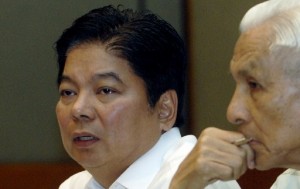Governor Amando Tetangco Jr. of the Bangko Sentral ng Pilipinas has suggested that the Philippine Stock Exchange take the lead in putting up technological infrastructure that will allow Filipinos from outside Metro Manila to buy and sell stocks and other securities.
He said allowing more Filipinos, especially those from the rural areas and cities outside the metropolis, to engage in trading of securities is necessary to achieve the goal of making the country’s capital markets more vibrant.
“The necessary infrastructure must be put in place so that more people outside Metro Manila will be able to engage in (portfolio) investments and so that the objective of deepening of the country’s capital markets is attained,” Tetangco told reporters.
He said the PSE and industry players could be instrumental in helping develop the domestic capital markets by putting up technology that will make stocks and other securities accessible to people from outside Metro Manila.
“Securities trading is concentrated in Metro Manila. The PSE, for instance, can help (by spearheading efforts to build the proposed infrastructure),” the BSP chief said.
Although government officials claim significant developments in the country’s economy over the past decade, they admit that most Filipinos are still not investment-savvy and that the country’s capital markets have a large room to develop.
According to the results of the first-ever Consumer Finance Survey (CSF) conducted by the BSP, most Filipinos are averse to engaging in investments.
The results, which were released last month, showed that in the National Capital Region, only less than one percent of Filipino households have investments in stocks, government securities, other securities or mutual funds. In areas outside NCR, the percentage of households that have investments in these instruments is near zero.
The BSP said that its own contribution to efforts to deepen the country’s capital markets is to continue holding financial literacy programs in various parts of the country and even in cities outside the country where there are huge concentration of overseas Filipino workers.
Tetangco said that in BSP’s financial literacy programs, audiences are taught the basics of savings, portfolio investments, and entrepreneurship.
“There is a need to educate Filipino households on the advantages of saving in financial institutions and investing in various forms of financial instruments,” the BSP said in the CSF report.
Survey results also showed that Filipinos in general are not inclined to investment and prefer relying on fixed income, such as salaries.



